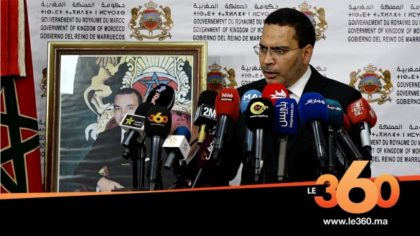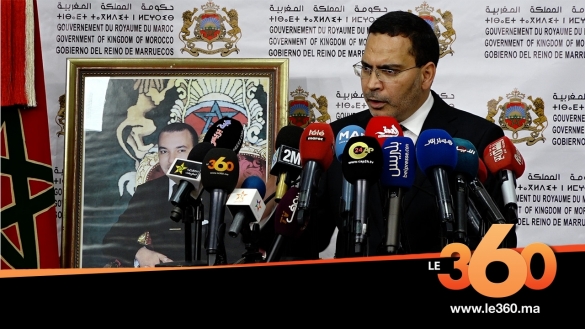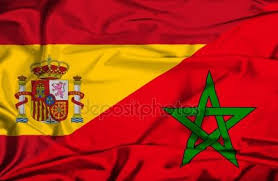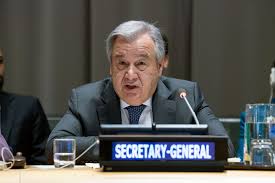 Morocco on Thursday condemned Thursday the incursion of armed elements of the polisario in Mijek, a locality east of the Moroccan defense system, in a buffer zone, where they besiege a position of MINURSO.
Morocco on Thursday condemned Thursday the incursion of armed elements of the polisario in Mijek, a locality east of the Moroccan defense system, in a buffer zone, where they besiege a position of MINURSO.
“These provocations reflect the separatists’ disarray and are doomed to failure,” said the government’s spokesman in a briefing at the end of the Cabinet weekly meeting Thursday.
The UN is intransigent as to the area east of the defense system in the Sahara and summons the “Polisario” to stop and refrain from transferring armed elements or administrative infrastructure to the region, Mustapha El Khalfi said, adding that “any violation of this situation puts the Polisario, and behind it Algeria, in confrontation not only with Morocco, but also with the UN”.
Polisario armed elements besieged a Minurso teamsite in Mijek, in the buffer zone, where a group of Sahrawi civilians had been observing a sit-in to protest the repression and misery prevailing in the Polisario-run Tindouf camps and to seek protection from the UN.
Mustapha El Khalfi noted that these provocations come after the various setbacks suffered by the opponents of Morocco’s territorial integrity.
He cited as an example the recent debates at the Fourth Committee of the UN General Assembly in New York, in which a delegation from the southern provinces took part, as an official delegation.
Part of Morocco’s diplomatic victories, Khalfi mentioned the position of the European Union on the inclusion of the Moroccan Sahara in its agreements with Morocco, a position which, according to him, is going in the right direction.
Returning to the debates of the 4th Committee, he recalled the “great change” in the position of South Sudan, which expressed its support for the Kingdom and pointed out that the Committee has made it clear that the Sahara issue is not a decolonization issue, but a question of territorial integrity.
The debates at this committee were also an opportunity to highlight the development witnessed by the Moroccan southern provinces and to shed light on the relevance of the autonomy plan presented by Morocco, in addition to the fact that the “Polisario” does not have any legitimacy to claim being the representative of the Sahara populations.
Actually, score of petitioners who addressed the 4th Committee renewed strong support to Morocco’s territorial integrity and sovereignty over the Sahara as well as for Morocco’s autonomy plan, describing it as a “serious and credible” initiative for the resolution of this regional conflict.
Even the ambassador of Venezuela, known to be a staunch ally of Algeria and one of the fierce supporters of the Polisario’s separatist theses, expressed his country’s backing to a “negotiated solution” to the Sahara conflict.
The address of the Venezuelan Ambassador Jorge Valero Briceño, before the Fourth Committee this year, was completely different from the usual terminology and phraseology used by Venezuela when dealing with the Sahara issue such as “decolonization process”. Instead, the Ambassador said his country supported “a negotiated solution” to the Sahara conflict, breaking away with Venezuela’s former rhetoric.
He also voiced support to the approach of the UN Secretary General’s personal envoy for the Sahara, Horst Köhler, to bring together “all” the parties to the conflict, including Algeria.
The European Union (EU) on its part reiterated before the 4th Committee its call for the registration by the UN High Commissioner for Refugees (UNHCR) of the population in the Tindouf camps, in Algerian territory, as repeatedly requested by the Security Council and other UN bodies.
The representative of Austria, who made the statement on behalf of the EU countries during the adoption of the Committee’s resolution on the Moroccan Sahara issue, also stressed that the European Union remains “concerned” about the impact of the Sahara conflict on regional security and cooperation.
He added that the EU continues to encourage the parties and neighboring countries to work with the UN Secretary-General’s Personal Envoy for the Sahara, Horst Köhler, to move the political process forward.
The Austrian diplomat also said that the EU welcomes the “commitment of the UN Secretary General to relaunch negotiations with a new momentum and a new spirit leading to the resumption of the political process, with the objective of achieving a just, lasting and mutually acceptable political solution” to the Sahara conflict.
The European Union, he went on to say, “continues to encourage the parties to show political will, and to work in an atmosphere conducive to dialogue, in order to start a more intense phase of negotiations, in good faith and without preconditions, taking note of the efforts made and developments occurred since 2007”.
In a nutshell, the Polisario and its mentor, Algeria, suffered several blows at the UN Fourth Committee.



